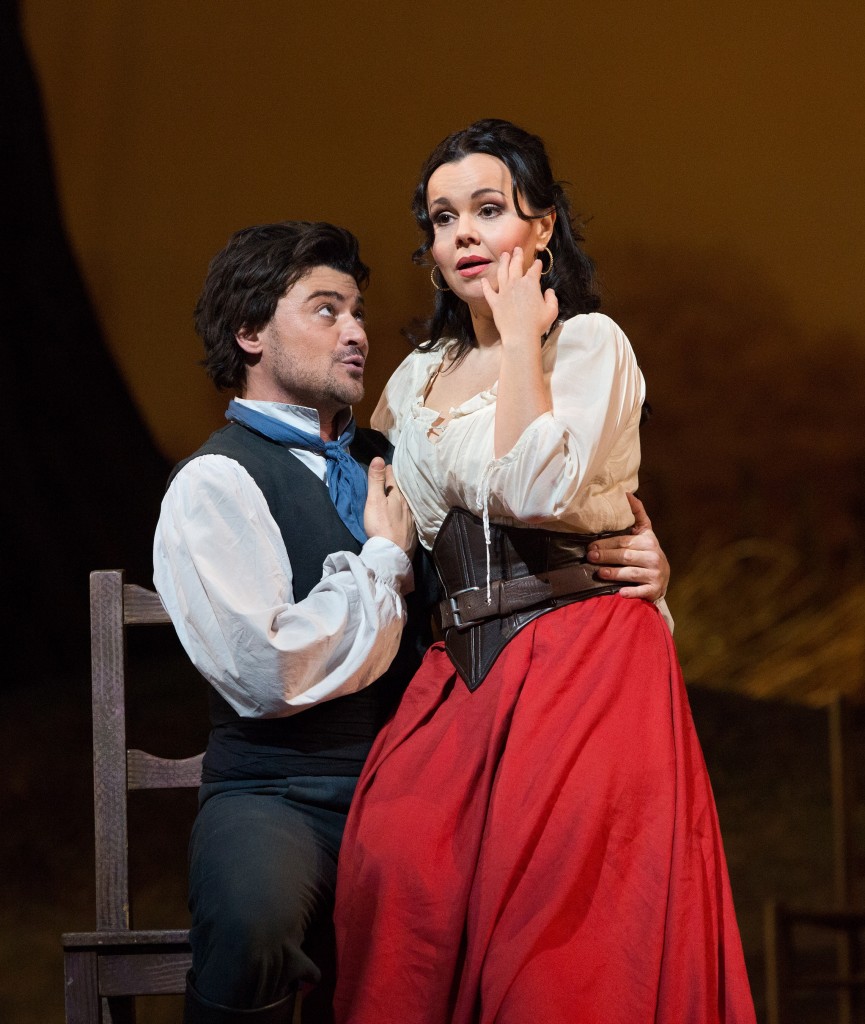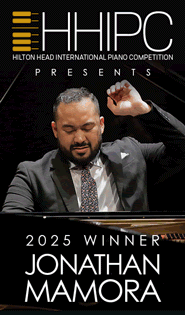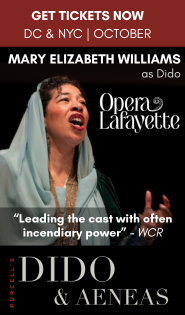Stars serve Donizetti well in Met’s “L’Elisir”

Vittorio Grigolo and Aleksandra Kurzak in the Metropolitan Opera production of Donizetti’s “L’Elisir d’Amore.” Photo: Marty Sohl
Donizetti month continues apace at the Metropolitan Opera—a month so far of excessively light comedy lent extra substance by memorable singing. Thursday’s season premiere of L’Elisir d’Amore continued that trend, following the path set by the revival of the Otto Schenk Don Pasquale a week ago.
And like that Pasquale, Thursday’s Elisir was often theatrically frustrating, particularly in the person of its star tenor, the ever-exuberant Vittorio Grigolo. Never selling anything short, the Italian tenor has a boundless energy that can be infectious and in other roles has led to hair-raising performances. His Nemorino seemed a petulant child basking in the first fierce flush of adolescence.
Yet vocally this was one of his most impressive Met performances to date, especially remarkable for being in a role that he could well have overpowered with his enormous lyric voice. Grigolo consistently and easily filled the house with a powerful, dark sound, thrilling with insistent passion.
This opera might not have survived in the standard repertoire were it not for its sublime Act II aria, “Una furtiva lagrima,” of which Grigolo’s account was magnificent—from the very beginning of the first verse his singing throbbed with desperate intensity, and he tossed up a stunning, hazy pianissimo on “lo vedo!” at the end of the stanza. After he reeled off a rippling cadenza, the audience burst into a roaring ovation that nearly precipitated an encore. Grigolo motioned for the conductor to continue, a surprising act of humility that no doubt disappointed many fans in the house.
He has an excellent Adina for this run in Aleksandra Kurzak, who somehow saw through her opposite’s teenage angst and found a believable arc that led her to fall for him. She has an expressive face and lively stage presence, and for all the flirtatious fierceness of her character, her portrayal was strikingly warm. She declined showy vocal ornamentation, instead giving a wonderfully direct account of the part mostly as written. High notes were often breathy, but the body of her voice has a lovely, cool color and a quick warble that is impossible not to like. Her calm, caring rendition of “Prendi, per me sei libero” was one of the high points of the evening, acting as a kind of rejoinder to Nemorino’s flashier aria just before.
The two made a sympathetic pair, in spite of Grigolo’s pouty antics and in spite of Bartlett Sher’s pouty staging, which opened the 2012-13 season. It is a generically rustic presentation, its sets a series of demurely painted flats, and doesn’t seem to have much to say about the opera. Neither did Enrique Mazzola, who, to be fair, was given a fairly thankless assignment in his company debut. There is not a whole lot in this score for a conductor to sink his teeth into, and Mazzola led an unassuming performance that ran into more than a few rough patches of ensemble. The orchestra lacked its accustomed depth of color and the chorus sounded unusually ragged.
A strong supporting cast was led by Adam Plachetka as Belcore, who initially sounded a little taut, but filled out nicely and ultimately showed off a bright, agile baritone in the second-act duet “Qua la mano, giovinotto.” Alessandro Corbelli’s voice felt a little lean for the role of Dulcamara, but he nonetheless sang creditably and gave a deliciously slimy portrayal of the snake-oil salesman. The brightest surprise in the cast was Ying Fang, who was a winning presence as Giannetta with her natural, uncomplicated charm. It was a treat to hear her clear, flowing soprano, and not at all difficult to imagine her in a role with more substance.
The Spring of Donizetti continues later in March when Sondra Radvanovsky will complete her triple crown of Tudor queens in the company premiere of Roberto Devereux, which sports a superb cast. Here’s hoping David McVicar can find a little more inspiration in the material than Messrs. Schenk and Sher.
L’Elisir d’Amore runs through April 7 at the Metropolitan Opera. Beginning April 2, Mario Chang sings the role of Nemorino and Pietro Spagnoli plays Dulcamara. Joseph Colaneri will conduct the April 7 performance. metopera.org



